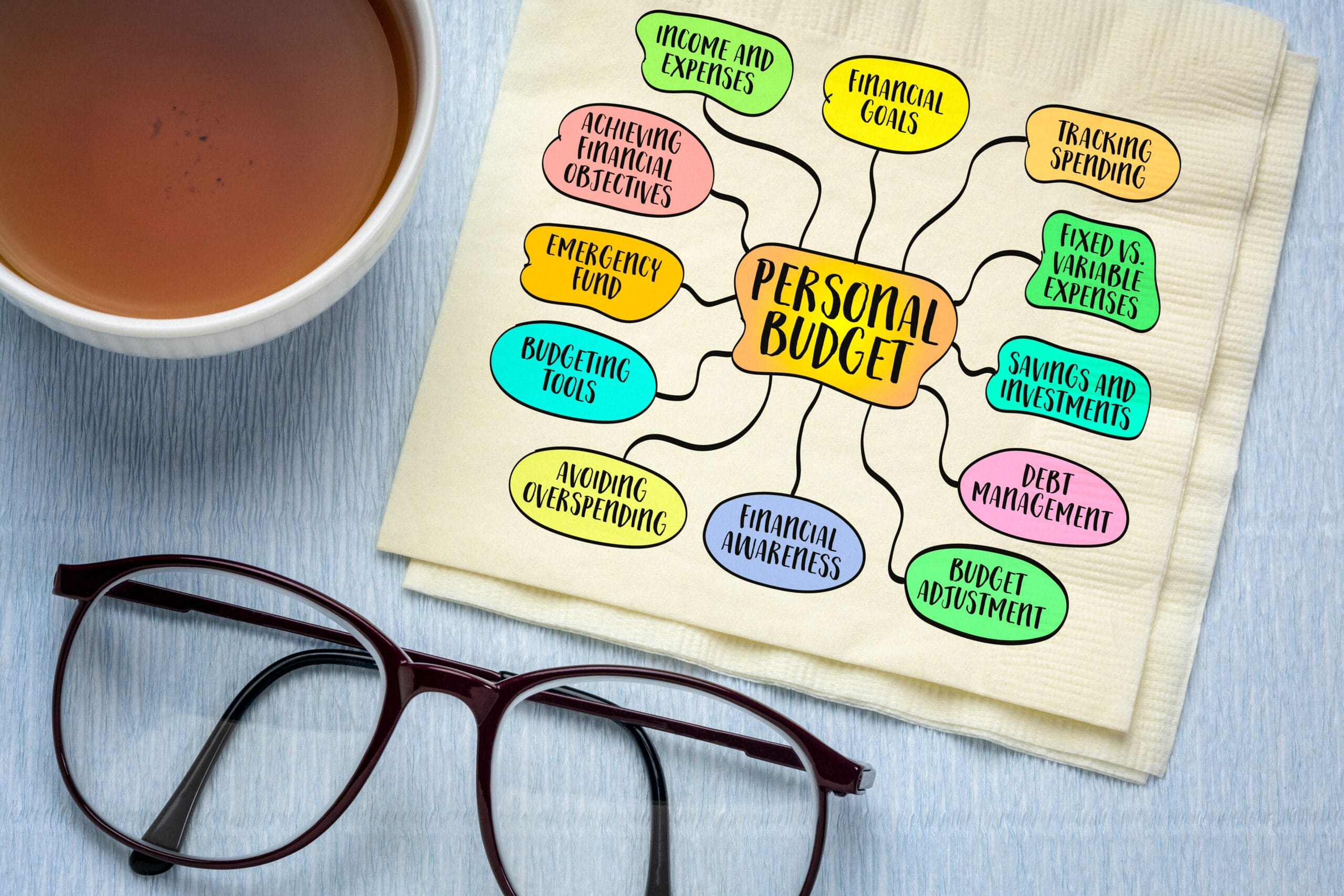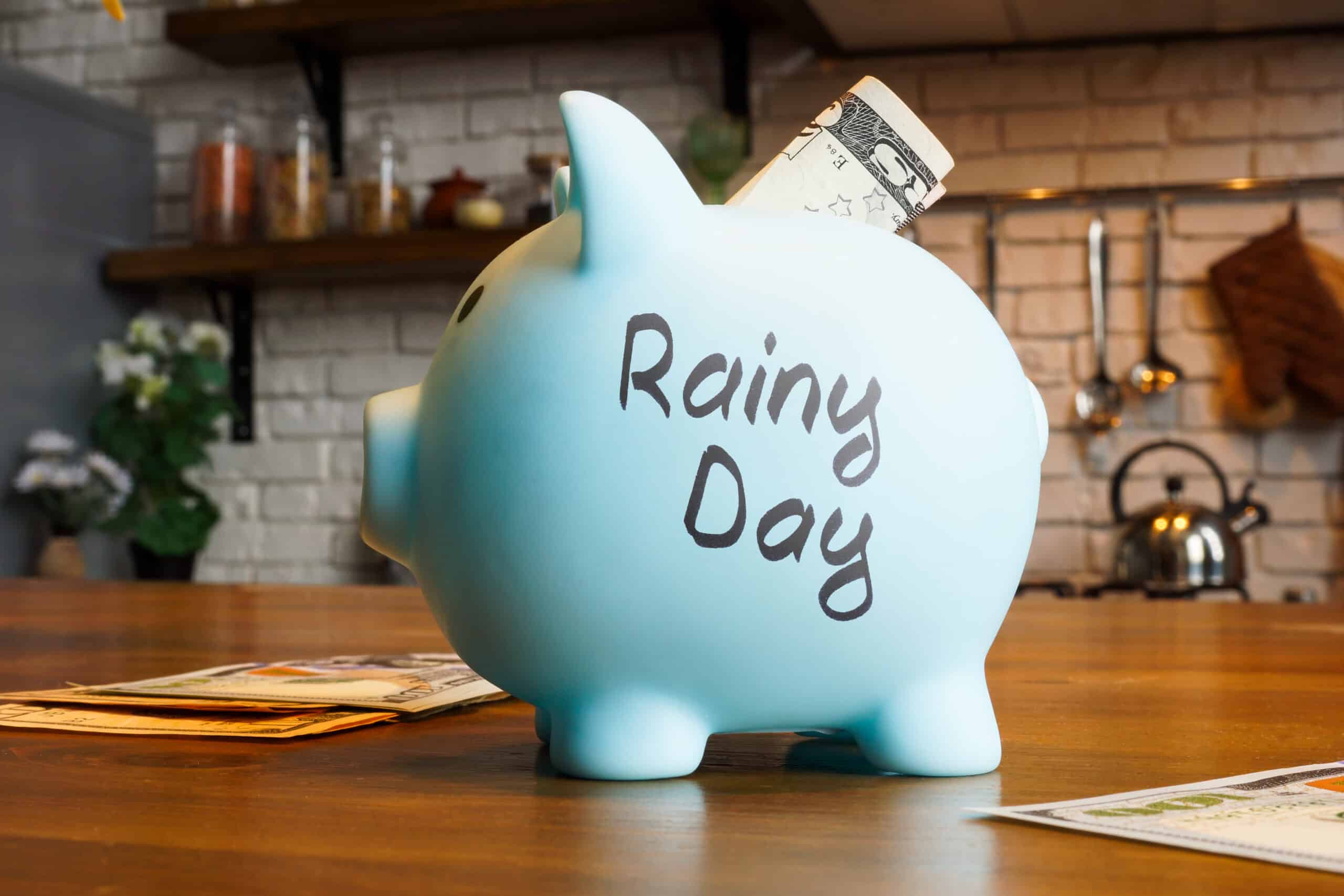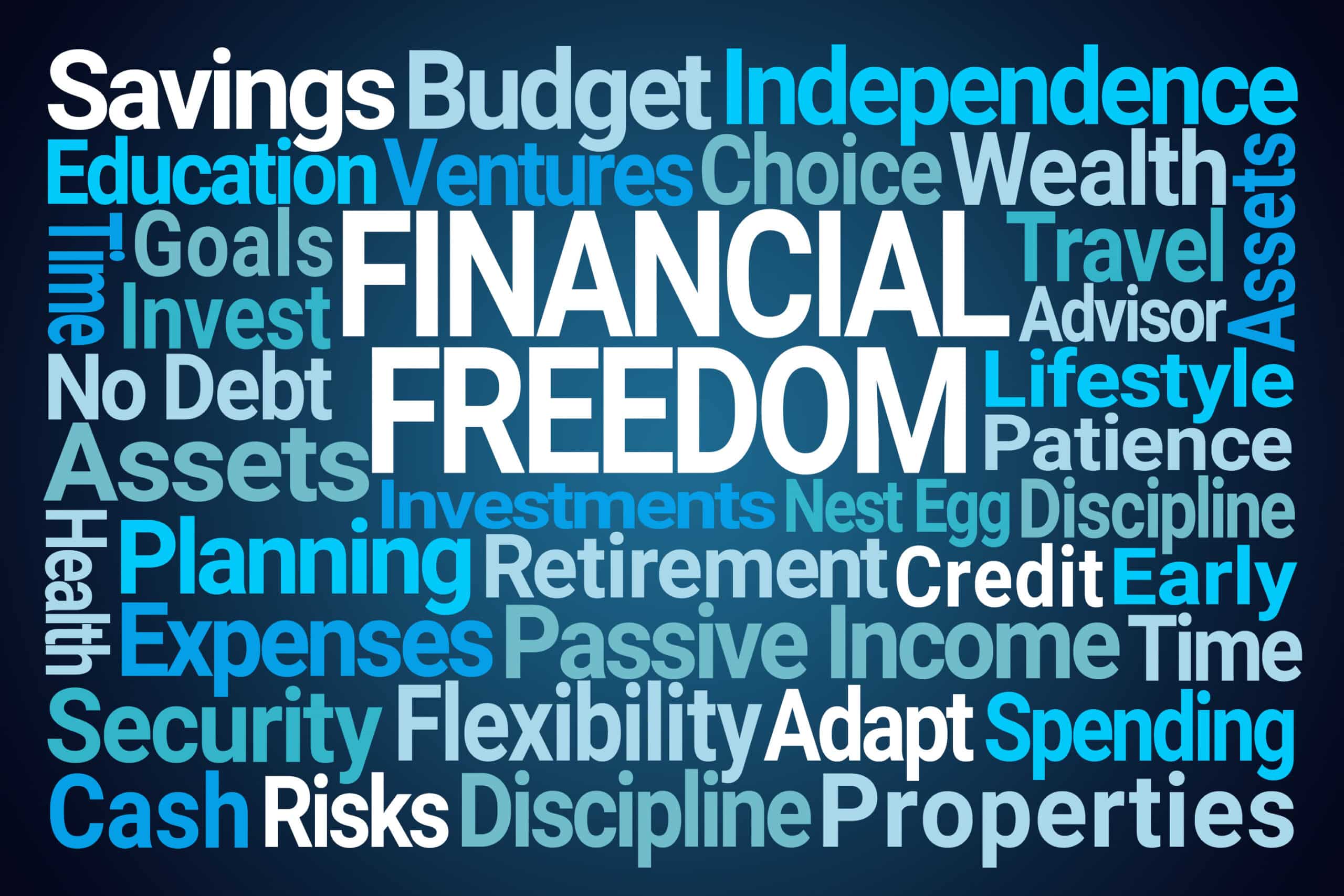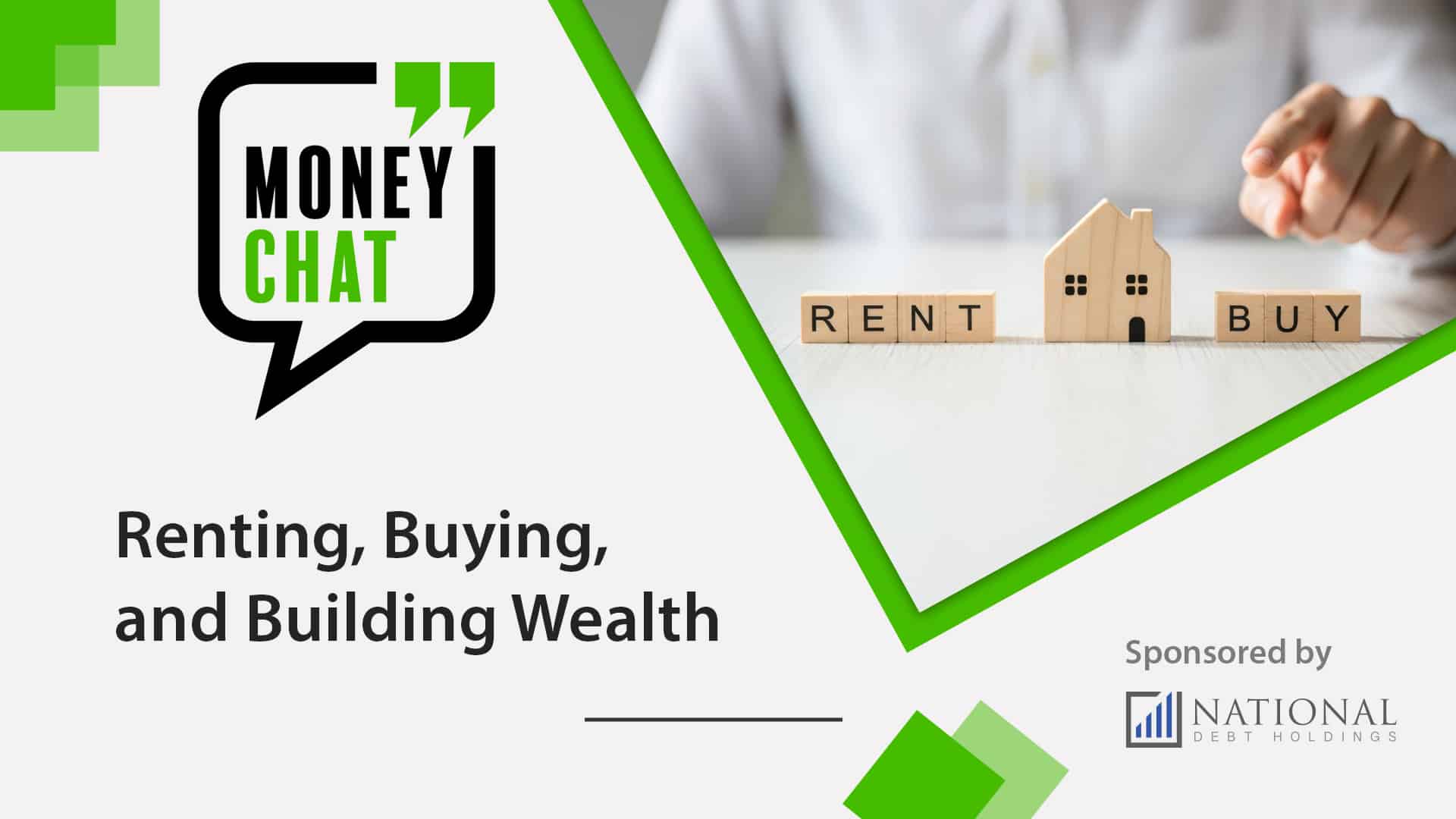
Options and Steps to Consider for Getting Out of Debt
Your options may seem limited when in debt, especially if you have an account already in the debt collection process. Luckily, they aren’t. There are lots of resources designed to help consumers out of any financial headwinds they may encounter. That’s why, when discussing debt, it’s vitally important first to highlight that financial troubles are solvable. No matter how dire the situation may seem, there are lifelines and guidelines to help you through.
In this Money Chat, we will provide you with options, steps, and tips to consider when getting out of debt.
Taking the Steps to Stop Incurring More Debt
First and foremost, consumers struggling with debt need to figure out how to stop digging deeper into the proverbial hole. It may seem impossible, but with a little patience and some navigating, anyone can work themselves out of financial hardships. Let’s jump into the steps.
Tackle Budgeting
Budgeting is essential to regain control of your finances and avoid accumulating more debt. Begin by meticulously tracking your expenses to understand where your money is going each month. This awareness allows you to identify areas where you can cut back on discretionary spending and redirect those funds towards debt repayment and savings.
Setting realistic financial goals, such as allocating a specific percentage of your income towards paying off debt, is crucial. By sticking to a well-defined budget, you can prevent unnecessary spending and prioritize financial stability.
The real key to budgeting comes from understanding what is a necessity versus what is a want. For example, if your monthly income is $1,300, and 20% of that is allocated for taxes, figure out how much of the $974 left is allocated for food, housing, and living expenses like insurance.

Make the Hard Decisions
This isn’t a true step in the right direction, as it’s more of a lateral move, but once a budget is set you must make the hard decisions based on your financial situation. For example, let’s say you cannot live on your current salary. It’s important for you, to get out of debt, to change your living situation for the better. Get roommates, change the products you purchase, or, in the worst case, consider moving to a cheaper area to live. These hard decisions will hurt in the short term but help you financially. Once you are more stable, then more options present themselves.
Build an Emergency Fund
Establishing an emergency fund is a critical step towards financial security. This fund serves as a buffer against unexpected expenses, such as medical emergencies or car repairs, that might otherwise force you to rely on credit cards or loans. Start small by aiming to save a manageable amount, like $500 or one month’s worth of essential expenses, and gradually increase this reserve over time.
Automating savings through direct deposit or automatic transfers ensures consistency and reinforces the habit of saving for emergencies. By prioritizing the buildup of your emergency fund, you can reduce the likelihood of falling back into debt during unforeseen circumstances.

Get a Handle on Insurance
Insurance plays a vital role in safeguarding your finances from unforeseen events that could lead to debt accumulation. Assess your insurance needs based on your circumstances, such as health, disability, auto, and home insurance. Adequate coverage helps to reduce financial risks associated with medical emergencies, accidents, or property damage.
It’s important to shop around for insurance policies to find the best coverage at competitive rates. Regularly reviewing your insurance policies ensures they remain current and aligned with your evolving needs, providing peace of mind and protecting your financial well-being.
An often ignored step, insurance plays a key role between going into debt and staying out of trouble. Finding the right insurance for your situation, however, is where the trickiness comes into play. Do not pick the first option. Shop your area for the best rates, most competitive offers, and figure out where insurance fits in your budget before making a decision.
Validate Any Additional Debt
With the first part out of the way, and a budget setup, first validate the debts you owe. Request verification of the debt in writing to confirm its accuracy and ensure you are legally obligated to pay. This step helps protect you from paying debts that may not be valid or are past the statute of limitations for collection, preserving your rights and financial resources.
Start Paying Down Your Current Debt
Once you have a true understanding of your budget and current financial situation, it’s time to start paying down debts. This is likely the easiest part as there aren’t a whole lot of choices to make. Really, the key here is staying true to your budget and understanding the options presented to you by the creditor(s) you owe money to.
Step 1: Start Paying Off Overdue Debts
Addressing overdue debts is crucial for improving your financial health and credit score. Begin by prioritizing debts with the highest interest rates or those already in collections. This proactive approach helps prevent further financial penalties and damage to your creditworthiness.
Contact creditors to negotiate feasible payment terms that align with your budget. Some creditors may offer hardship programs or reduced settlement options, providing you with opportunities to settle debts at more manageable terms. Staying organized with a clear repayment plan and monitoring your progress ensures steady debt reduction and sets the foundation for financial recovery.
Step 2: Work with Collection Agencies or Creditors to Make a Payment Plan
As we’ve mentioned, collaborating with collection agencies or creditors is a constructive step towards resolving outstanding debts. Communicate openly with creditors to explore flexible repayment options that suit your financial situation.
Many creditors are willing to negotiate repayment plans, allowing you to spread payments over an extended period or settle debts for less than the full amount owed. Building a constructive relationship with creditors demonstrates your commitment to resolving debts responsibly. Keeping detailed records of all communication and agreements made ensures clarity and accountability throughout the repayment process.
By proactively addressing debts through structured repayment plans, you can regain financial stability and pave the way for a debt-free future.
Consolidate Debt
Once you’ve begun the repayment process, or worked with a collection agency or creditor to figure out a sound repayment plan, it’s time to consider consolidating your debt. This part seems unnecessary but is often the part most missed by those trying to get out from under unmanageable debt.
Option 1: Consolidate Your Debt
Consolidating debt involves combining multiple debts into a single, more manageable payment. This can be done through balance transfers to credit cards with lower interest rates, taking out a debt consolidation loan, or utilizing a debt management plan through a credit counseling agency.
By consolidating debt, you simplify your finances and potentially lower your overall interest payments, making it easier to stay on track with payments and accelerate debt repayment.
Option 2: Arrange a Debt Settlement
Debt settlement involves negotiating with creditors to pay a lump sum that is less than the total amount owed, typically as a final payment to settle the debt. This approach may be suitable for individuals experiencing financial hardship or those with significant delinquent debts.
Working with a reputable debt settlement company or directly with creditors requires careful consideration to ensure the terms are fair and align with your financial capabilities.

Enjoy Financial Freedom
By following these steps, you will have more financial freedom than you had before. It’s important to remember that the time and energy put in now will only help in the future. This freedom involves adopting sustainable financial habits and maintaining a balanced approach to money management.
Once you are here, we have three recommendations:
- Build a Strong Credit History: Consistently making payments on time and reducing debt improves your credit score, enhancing your financial standing for future opportunities.
- Continue Budgeting and Saving: Maintain disciplined budgeting practices and continue to grow your emergency fund to safeguard against future financial challenges.
- Investing in Your Future: Once debts are under control, consider investing in retirement accounts or other long-term financial goals to secure your financial future.
By following these steps and maintaining a proactive approach to managing your finances, you can achieve financial freedom and enjoy greater peace of mind knowing you are in control of your financial destiny.
Free Resources
For guidance on your finances, check out 360 degrees of Financial Literacy by the American Institute of CPAs. To learn more about judgments, wage garnishments, or any other topics regarding credit and debt, please visit other articles in the Receivables Info Money Chat series. In particular, be sure to check out the following related Money Chat articles:
- The Difference Between a Collection Account and a Judgment
- The Three Options Creditors Have If You Don’t Pay Your Debt
- What To Do When an Attorney Contacts You About a Debt
Have an idea for a Money Chat topic?
We want to hear from you! If you have a suggestion for a future Money Chat topic, please email us at [email protected].
The information contained in this article is meant to serve as general guidance for consumers and not meant to serve as comprehensive financial advice. For questions about your individual circumstance, finances, or accounts, please contact your creditor(s) and/or financial advisor directly.





